Build coalitions, not cathedrals
Pascal Lamy on more equitable global governance and international cooperation
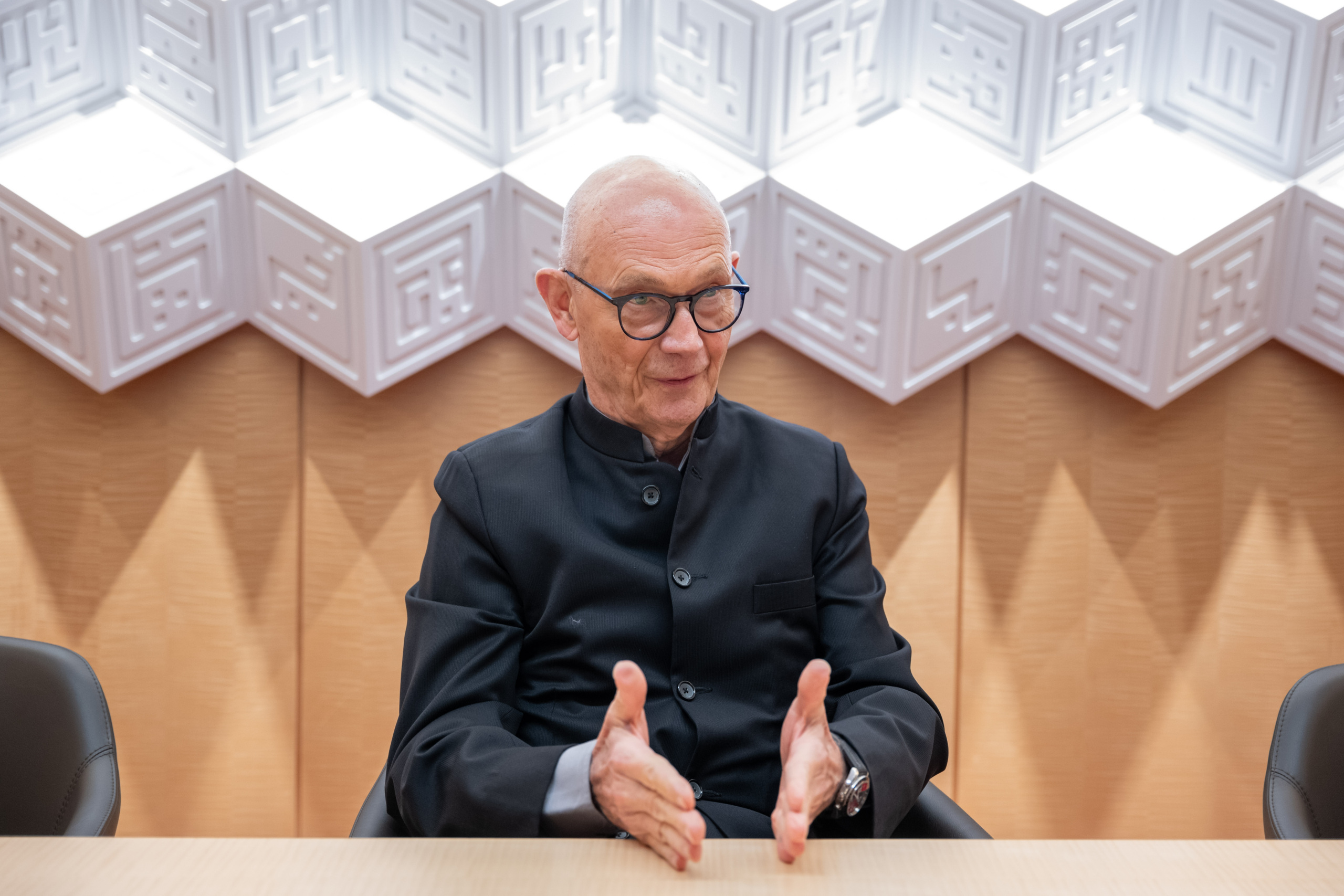
Inaugurating a new series on the future of the international system as part of the Palliser Lectures – a partnership between Salzburg Global Seminar, the 21st Century Trust and the Aga Khan Foundation – Pascal Lamy spoke at the Aga Khan Centre in January on The future of global governance and international cooperation in an increasingly fractured world.
AKF sat down with Lamy just prior to his lecture to learn more.
How should we understand the current state of the international order? 25 years into a new millennium, with conflicts in Europe and the Middle East among other threatening trends gaining traction, Pascal Lamy’s assessment is stark: it’s “a mess”.
In London to deliver the eighth of a series of Palliser Lectures at the Aga Khan Centre, Lamy – who has had a long career working in governments, multilateral institutions and political consultancy – is preparing for an evening of discussions around the contemporary moment in global governance and international cooperation.
“It’s in a very bad shape, and I think it’s quite a timely moment to look at that. I’ve been in the business for forty years… Never seen such a mess.” When asked to elaborate on his reasons for believing this, Lamy cites the US-China rivalry. “This relationship is a geo-strategic rivalry and for the moment they both believe they’re too vulnerable to each other – and this is a sort-of Cold War situation. This taints the whole background of international cooperation.”
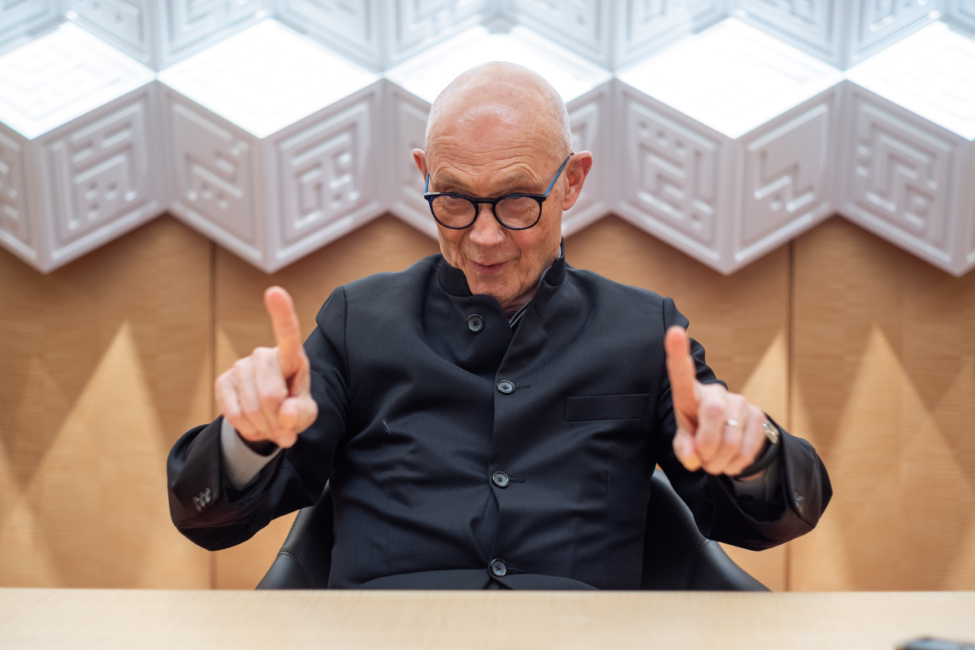
“[International] organisations are driven by their members; this is a fundamental principle of the existing international system – its sovereignty.”
With a career spanning four and a half decades, some of the most notable positions Lamy has occupied include Director General of the World Trade Organisation between 2005 and 2013, Chairman and Vice-Chairman of the Paris Peace Forum, and Chief of Staff of the Office of the former and late President of the European Commission, Jacques Delors.
Having worked both behind the scenes and in the spotlight on several of the most successful initiatives of the 20th century – the Schengen Treaty, the creation of a single market, and the Treaty of Maastricht, which were foundational to the European Union, as well as the Trade Facilitation Agreement at the World Trade Organisation – Lamy is fully aware of where, and how, the current order is challenged today.
“Organisations are driven by their members; this is a fundamental principle of the existing international system – its sovereignty. Treaties depend on the will of sovereigns; organisations depend on the will of those who have built these organisations. I was the leader of one for quite a part of my life, and I know that they want to keep control.”
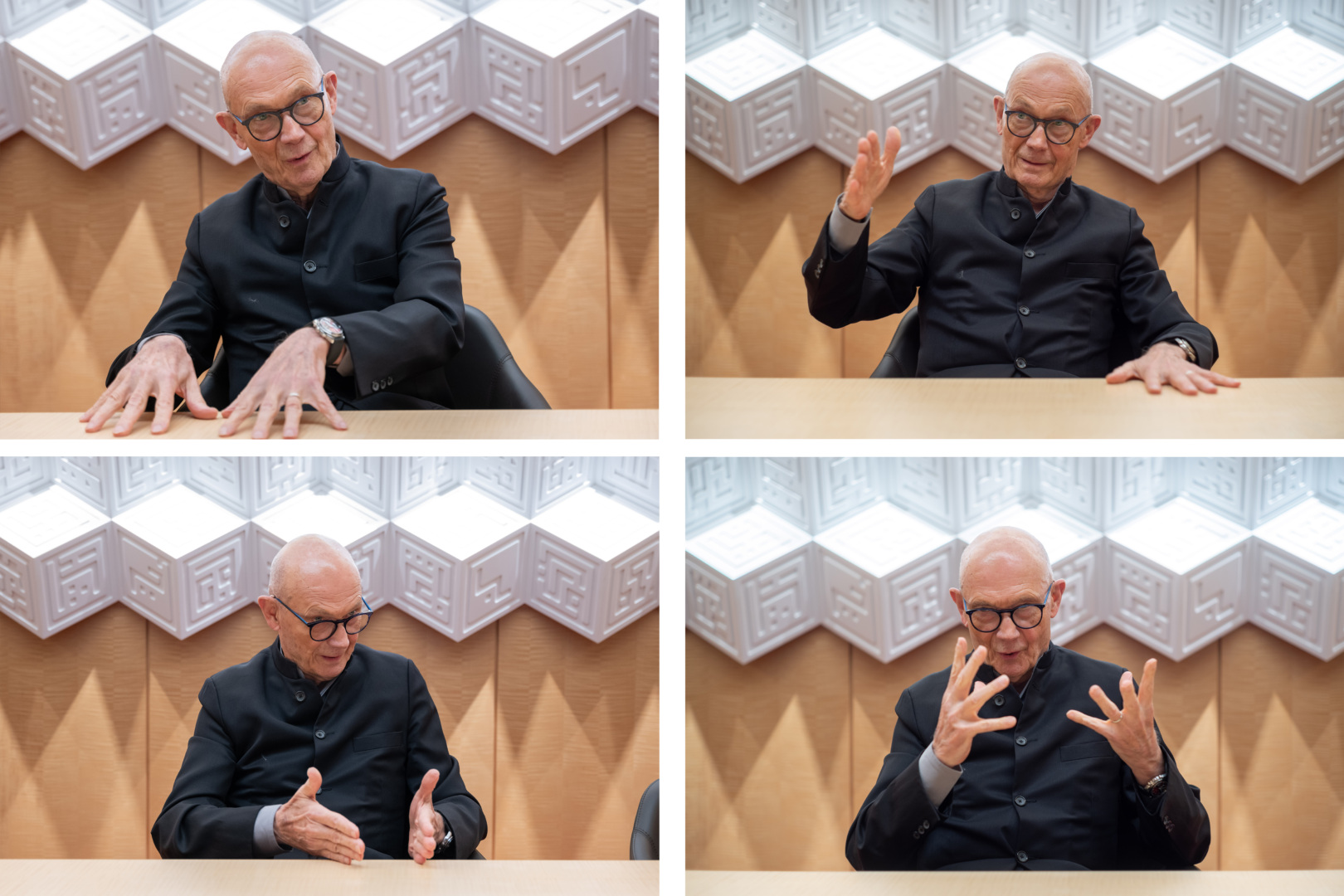
“One of the problems is obsolescence of the system… and that the distribution powers and responsibilities haven’t significantly changed. This is one of the explanations for why a number of countries don’t like it, and understandably. If you look at the shares of the votes around the IMF table, it’s not a proper reflection of today’s financial world system.”
Countries with the largest concerns are predominantly emerging economies, such as China, India and Brazil, represented in the so-called BRICS bloc – some 42% of the world’s population and, as of 2023, making up 32% of global GDP in terms of purchasing power parity. “What the BRICS want to do together is an open question,” Lamy continues, “What’s clear is that it is a coalition that is unhappy with the system.”
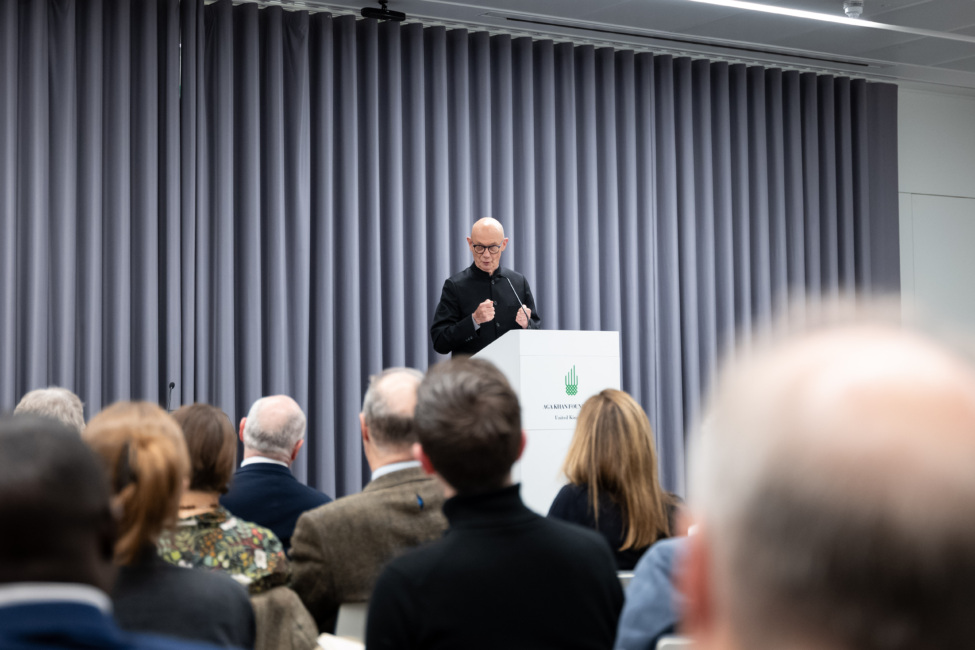
As part of the Palliser Lecture series – a partnership between Salzburg Global Seminar, the 21st Century Trust and the Aga Khan Foundation – Pascal Lamy delivered an address on The future of global governance and international cooperation in an increasing fractured world at the Aga Khan Centre.
Yet, for Lamy, this is not enough. “The absence of a clear alternative is a handicap to reforming…. It’s absolutely true that the Security Council doesn’t reflect today’s balance of power, and it’s true that in other organisations the balance of rights and responsibilities must be addressed. And it’s also clear that under these organisations there is a sort of value-basement which starts to be questioned more and more openly by some countries… [which] describes where there’s probably room for renegotiation. But so far, this hasn’t happened.”
Reflecting on the impasse, Lamy muses: “[M]aybe somebody having nothing to lose can be bold enough and say, ‘look guys, I’ll table a solution. This should be how reform should land. Now try and eat that!’”
Founder of the Paris Peace Forum and as chair of the Climate Overshoot Commission, an independent group of distinguished global leaders who have built a “bold and actionable” strategy to mitigate the risks contingent on exceeding the 1.5 degrees Celsius limit on global warming, Lamy believes that a possible approach – to global governance and international cooperation more generally – has been identified.
“I think we collectively know the way forward… What we’ve done [with the Commission] is make sure that there is, on the table, a holistic, complete view of the various options – which has never been the case.” While treaties such as the Paris Agreement are important for building consensus among nations, especially regarding the climate crisis, they are, for Lamy, also representative of a “very weak international governance framework”. “The price of this,” he says, “is that we do it our own way, that it’s a nationally determined contribution – and a lot of different, nationally-determined contributions will not solve the problem.”
[M]aybe somebody having nothing to lose can be bold enough and say, ‘look guys, I’ll table a solution. This should be how reform should land. Now try and eat that!’
Challenges associated with this approach are, as Lamy has stated, most evident in financial systems and what he describes as the “North-South polarisation on climate action”. While historically the North is responsible for emitting the highest amount of carbon dioxide into the atmosphere, emissions patterns are changing. Yet the impact of climate change, and the series of fractures around it, is likely to grow in the coming years – with the view “that it’s disproportionately hitting poorer countries that have no responsibilities” becoming more obvious.
“The notion that the North has to pay for the South is there. The question is: how much? What are the resources? What are the conditions to do that? …As long as the global market capital system does not properly price nature, it’s going to be very hard to find the enormous amount of trillions we need for the climate and biodiversity transition.”
It is vital to consider these imbalances when considering climate action. Options to mitigate climate change that might seem reasonable to some – such as geoengineering – may seem full of unjustified risks to others. “For a number of sovereign countries,” Lamy continues, “the risk-reward is different, because they know what the risk is for them, not five years, not ten years, not twenty years from now, but next month, next summer.”
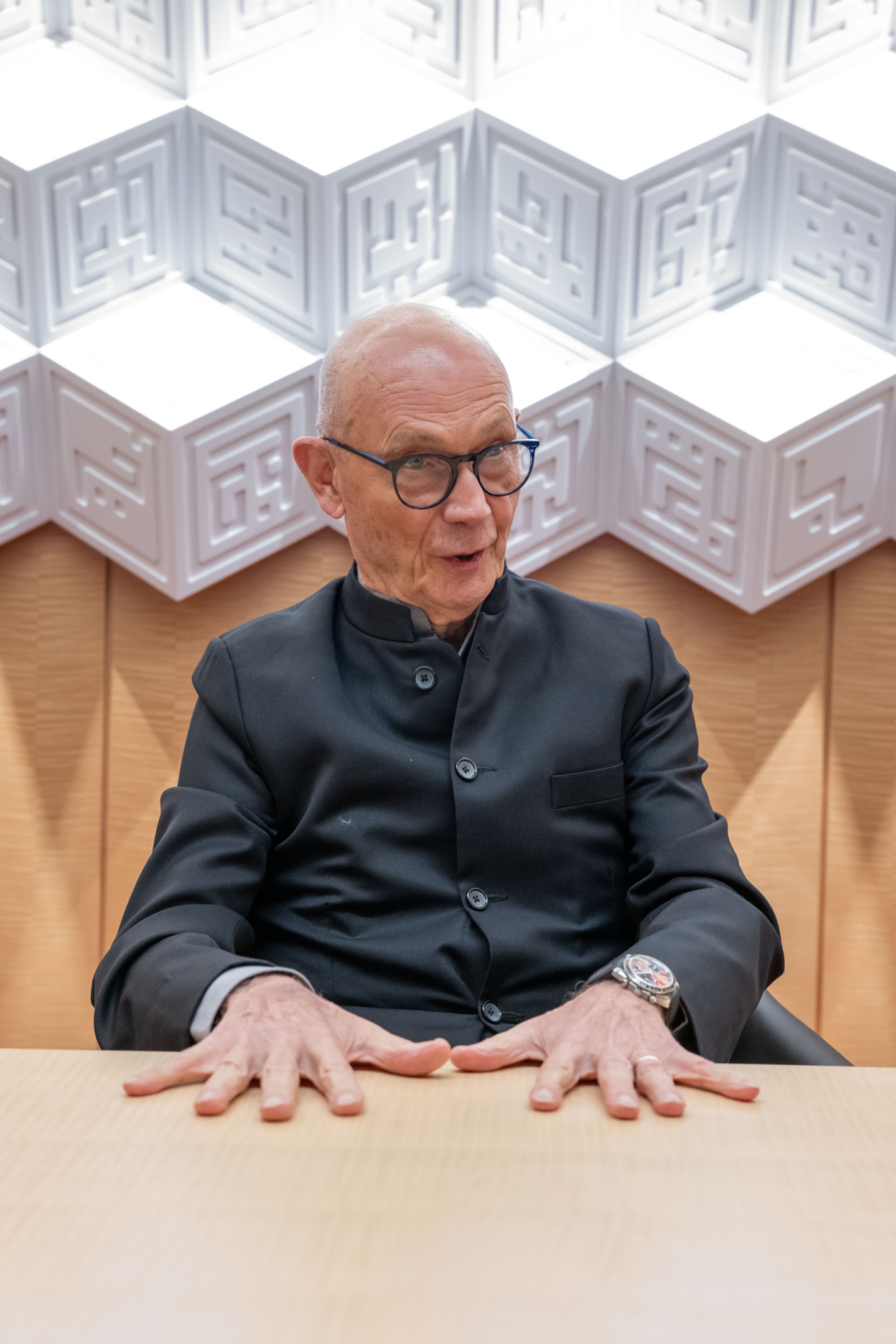
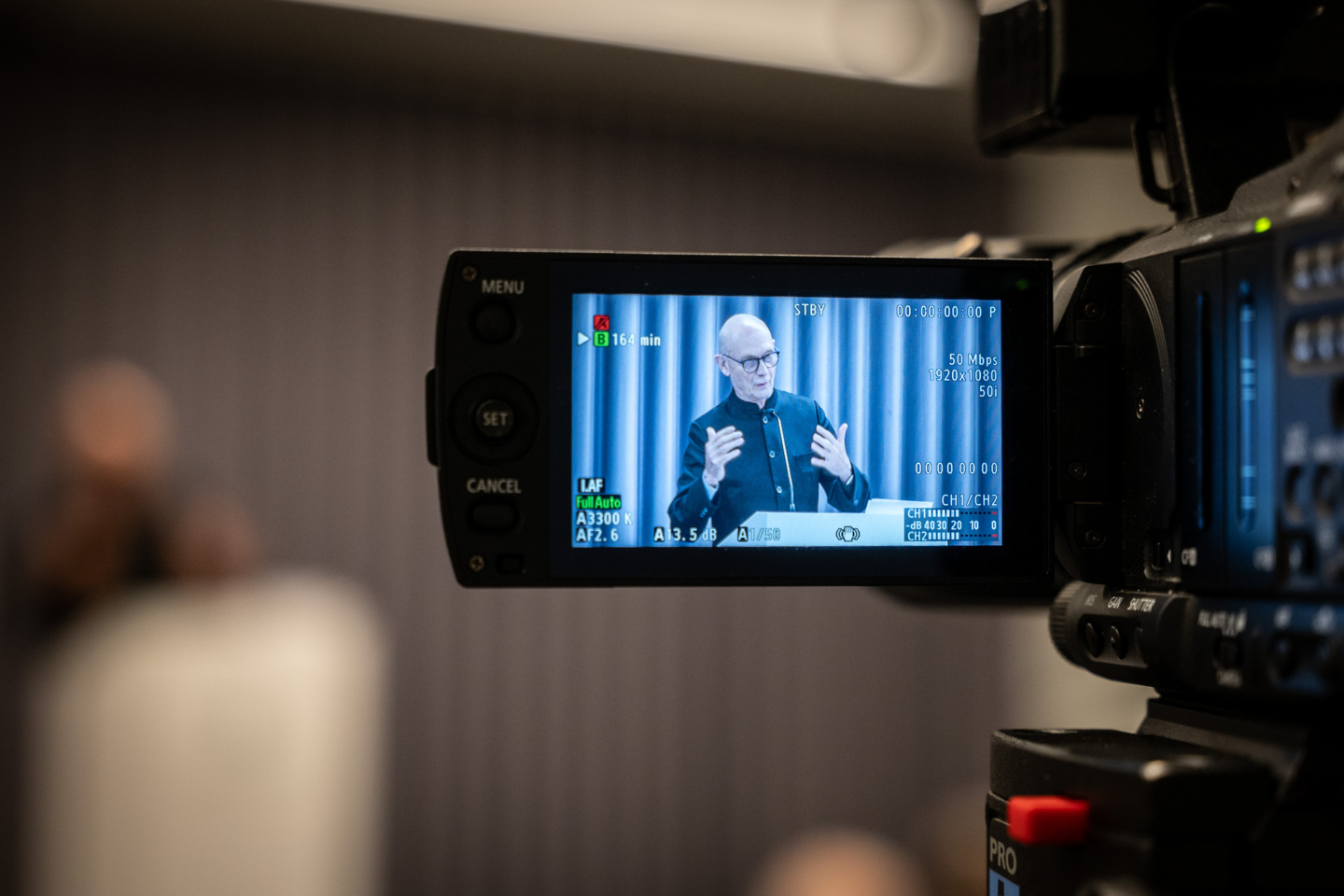
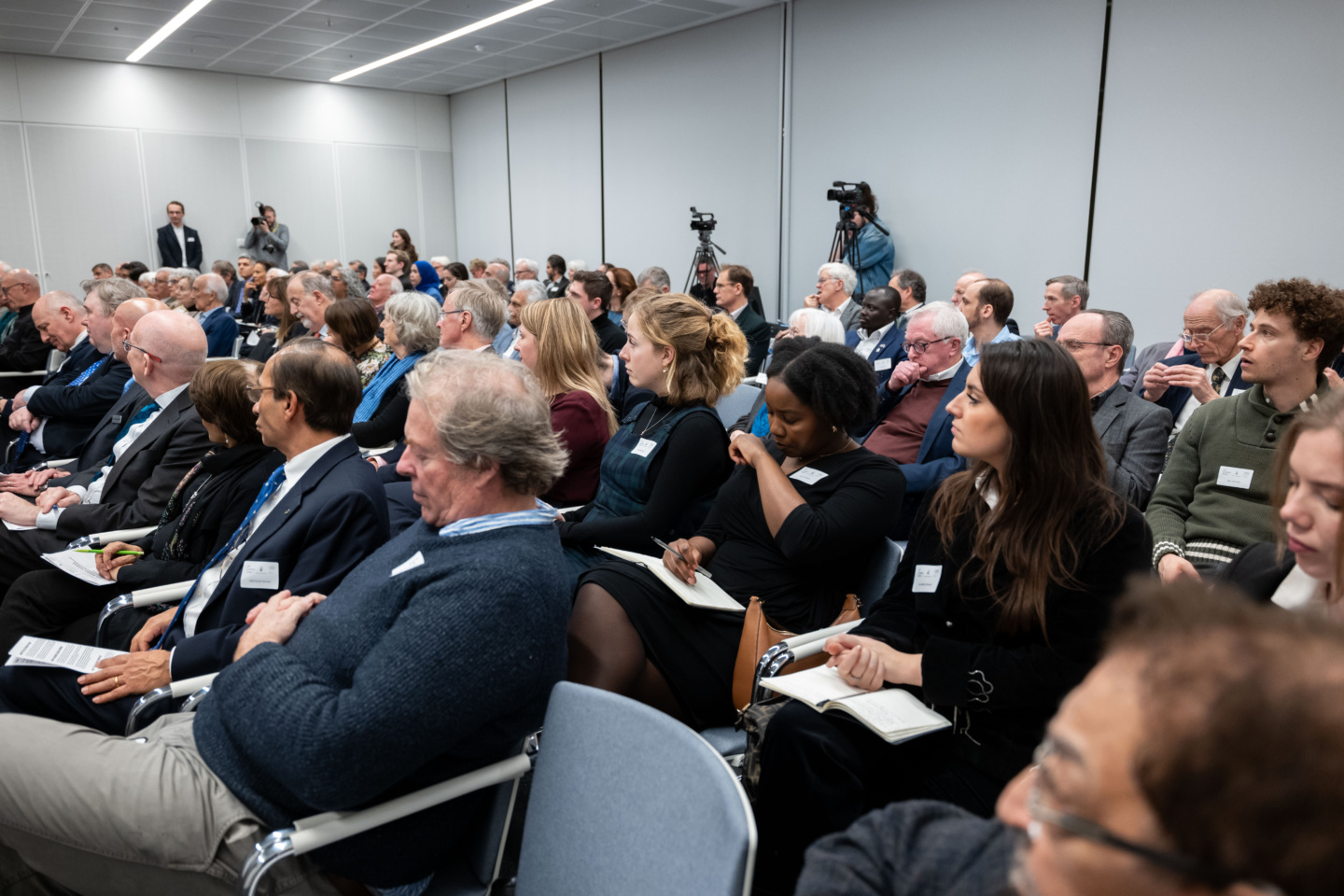
Incorporating views from across the globe, the Climate Overshoot Commission offered an integrated set of suggestions for achieving a “safer, cleaner, more equitable world”, defined by what they called the “CARE Agenda” – Cut, Adapt, Remove, Explore, which, Lamy asserts, “is the right order of priority.” He believes the Commission is demonstrative of how the international community might establish and strengthen frameworks going forward, freer from conventional political constraints.
“We are not going to build cathedrals, treaties, organisations – because this is the privilege of sovereigns that can enter, or not, depending on their will, into respective obligations.” Rather, in bringing together former heads of government, national ministers, directors of intergovernmental organisations, leaders of environmental groups and academic experts – as the Climate Overshoot Commission has done – the knowledge capacity and pragmatism to weigh in on international issues is aggregated. “I’m not saying that the existing international system cannot help, but given where we are on, notably, geopolitics, we have to rely on more pragmatic approaches… the first family [of which] is multilateralism, the second family is what I call polylateralism.”
Let’s be pragmatic… let’s identify a series of issues, of problems and retail them in a way that they can be addressed by purpose-led coalitions. It’s a different game.
When asked what difference organisations like the Paris Peace Forum or the Aga Khan Development Network can make to promote better international cooperation and climate action today, Lamy cites their “getting-things-done culture” and bottom-up approach, bringing together purpose-led coalitions and initiatives.
“It’s starting from a different point of view… Let’s work with non-sovereigns that today are big international actors: NGOs, big multinational corporations, major academic institutions, cities, regions. Let’s be pragmatic… let’s identify a series of issues, of problems and retail them in a way that they can be addressed by purpose-led coalitions. It’s a different game.”
To successfully navigate our way through the multiple issues that make up “the mess”, Lamy settles on what he calls “polylateralism”: working with different stakeholders as opposed to different sovereigns. This means developing hybrid forms of organisation that can mobilise different and diversified actors – with on-the-ground, locally-led experiences acting as a critical foundation. Answering the question of how to build a more equitable world, and mend international cooperation, must start with collaborative action. There is virtue in a diversity of approaches; “knowing how to do it together, however, is still a very, very big challenge”.
Photographs by Christopher Wilton-Steer.

Support our work Your donations are helping us build a future where we all thrive together.